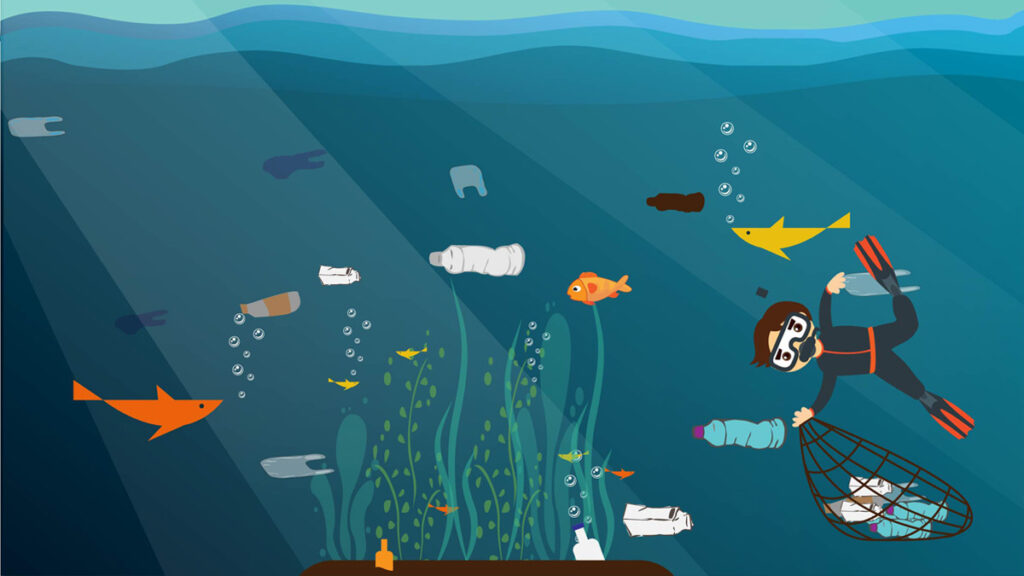Eco-friendly diving is about more than just following a set of rules; it’s a mindset that involves caring for the ocean and its inhabitants. By adopting sustainable behaviours, both underwater and on land, we can make a positive impact on the health of our oceans. In this article, we’ll cover 10 eco-friendly diving practices, tips for minimising your environmental footprint while travelling, and some of the best courses to help you become a more eco-conscious diver.
10 Eco-Friendly Diving Practices
1. Maintain Proper Buoyancy Control
One of the most important eco-friendly diving practices is mastering buoyancy control. Poor buoyancy can lead to unintentional damage to coral reefs and other delicate marine life. Kicking up sediment from the ocean floor also disrupts the habitat of many creatures. By practicing buoyancy control, you ensure you can hover above the seabed without touching or damaging anything. This not only protects the environment but also enhances your dive experience by conserving energy and allowing for smoother movement through the water.
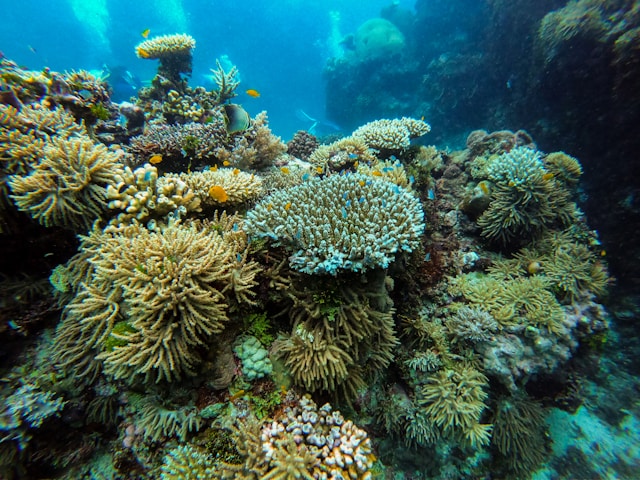
If you have recently earned your diving license, you are likely to be working on your buoyancy during every dive. It takes time to master neutral buoyancy, so be patient with yourself. Also, consider joining a Perfect Buoyancy dive specialty to fast-track your buoyancy skills.
2. Use Reef-Safe Sunscreen
Standard sunscreens contain harmful chemicals, such as oxybenzone and octinoxate, which have been shown to cause coral bleaching. As a diver, it’s crucial to choose reef-safe sunscreens made from mineral-based ingredients like zinc oxide or titanium dioxide. Top-rated reef-safe sunscreens for divers include Badger sunscreen, Raw Elements, and Stream2Sea. Alternatively, consider wearing sun-protective clothing like rash guards, dive skins or long-sleeve wetsuits to minimize sunscreen use altogether.
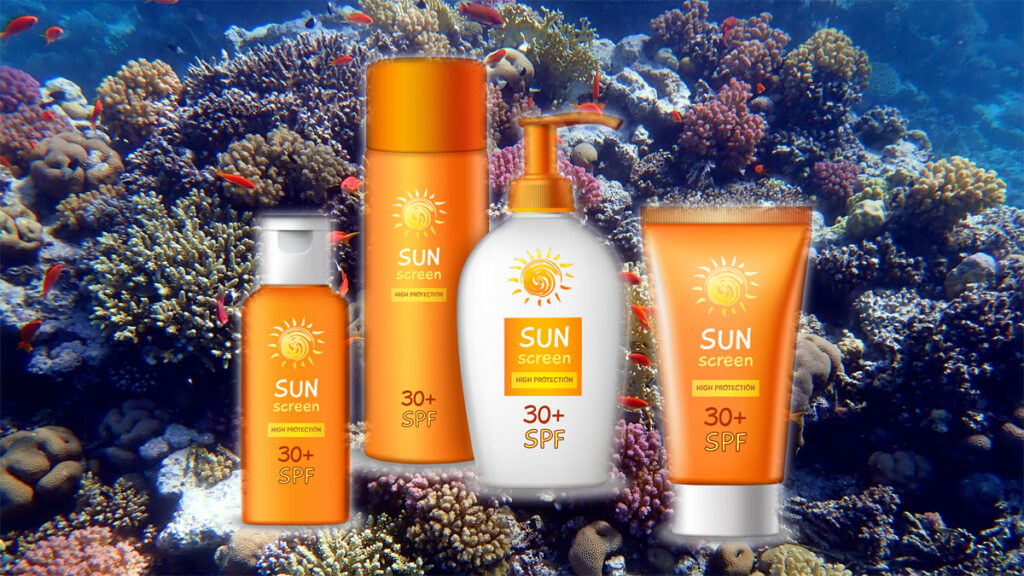
3. Don’t Touch or Disturb Marine Life
One of the golden rules of responsible diving is to observe marine life without touching or disturbing it. Handling marine creatures can cause stress, damage delicate ecosystems, and disrupt their natural behaviours. Similarly, never stand on or touch coral, as it is fragile and slow-growing. Always maintain a safe distance from marine life and enjoy the underwater world as a respectful observer.
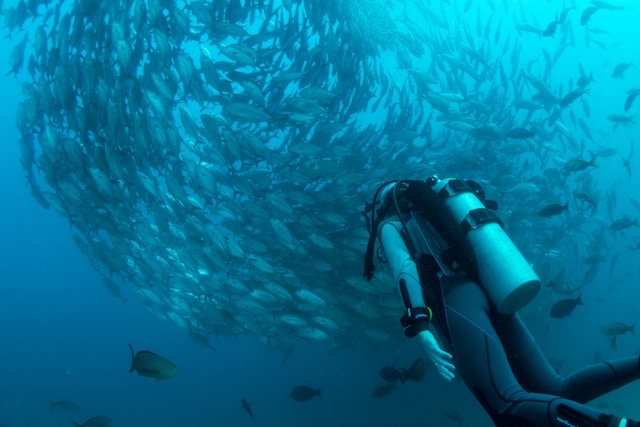
4. Avoid Feeding Marine Animals
Feeding marine life can have unintended consequences. It disrupts the natural feeding habits of fish and other sea creatures, making them reliant on human interaction. This changes their behavior, leads to overcrowding in certain areas, and can throw off the balance of the ecosystem. Stick to observing, not interacting, with wildlife during your dives.
5. Pick Up Trash While Diving.
Marine debris, such as plastic bottles, bags, and fishing lines, poses a serious threat to marine life. As an eco-conscious diver, you can make a big difference by collecting trash you encounter during your dives. Make it a habit to carry a mesh bag with you to safely collect debris without harming marine animals. However, avoid picking up trash that may be hazardous or entangled in delicate coral, and report it to local authorities if necessary.
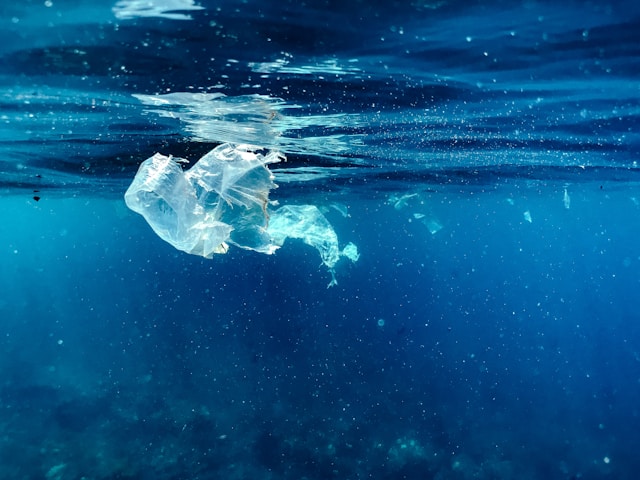
6. Choose Eco-Friendly Dive Operators
Not all dive centres have environmentally sustainable practices, so it’s important to do your research. Look for dive centres that prioritize eco-friendly policies, such as following sustainable practices, supporting marine conservation initiatives, and participating in community clean-up efforts.
7. Limit the Use of Single-Use Plastics
Single-use plastics, such as water bottles, straws, and food packaging, contribute significantly to ocean pollution. As a diver, you can take steps to reduce plastic waste by bringing reusable water bottles, cutlery, and bags. Whenever possible, choose plastic-free alternatives or opt for products made from biodegradable materials. Even small changes in your daily habits can have a big impact on reducing marine pollution.
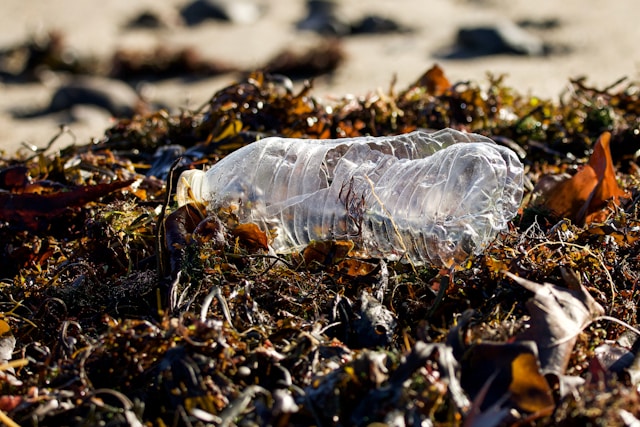
8. Minimize Your Carbon Footprint When Travelling
Diving often involves travel, which can contribute to your carbon footprint. To offset your environmental impact, consider flying less or choosing eco-friendly accommodations that focus on sustainability. Look for hotels or resorts that use renewable energy, limit water waste, and actively support marine conservation efforts. You can also offset your carbon emissions through programs that fund renewable energy projects or reforestation initiatives.
9. Take Part in Marine Conservation Programs
Becoming an active participant in marine conservation efforts can deepen your commitment to eco-friendly diving. Many dive centers offer opportunities to get involved in reef restoration projects, beach clean-ups, or citizen science programs where divers can contribute valuable data about the state of coral reefs and marine life populations. By participating, you’ll gain a better understanding of the challenges facing our oceans and contribute to their protection.
10. Join the SSI Blue Oceans Community
The SSI Blue Oceans community offers a platform for divers passionate about marine conservation to come together and take action. As a member of Blue Oceans, you’ll have access to valuable resources and opportunities to join eco-friendly initiatives. This global community is dedicated to preserving the health of the ocean, and by joining, you can connect with like-minded divers who are committed to making a difference.
Will my efforts make any difference?
Many divers wonder if their efforts truly make a difference when it comes to marine conservation. The reality is that every small action counts. From choosing the right sunscreen to supporting sustainable dive operators, the collective efforts of the diving community can lead to significant improvements in ocean health. It’s also important to recognize that you don’t have to be perfect—taking steps in the right direction, no matter how small, contributes to a healthier ocean.
Is being eco-friendly expensive?
Another common concern is that eco-friendly practices might be too expensive or inconvenient. However, many sustainable practices, such as reducing plastic use, are simple changes that cost little to nothing. Whether you’re diving locally or abroad, it’s about making choices that have the least impact on the environment while still enjoying the sport. That doesn’t have to be expensive.
Courses to Become an Eco-Friendly Diver
If you want to deepen your knowledge and contribute more effectively to marine conservation, become an Ecology Specialty Diver. You can learn everything from how to dive safely with sharks and rays to essential marine conservation skills like these:
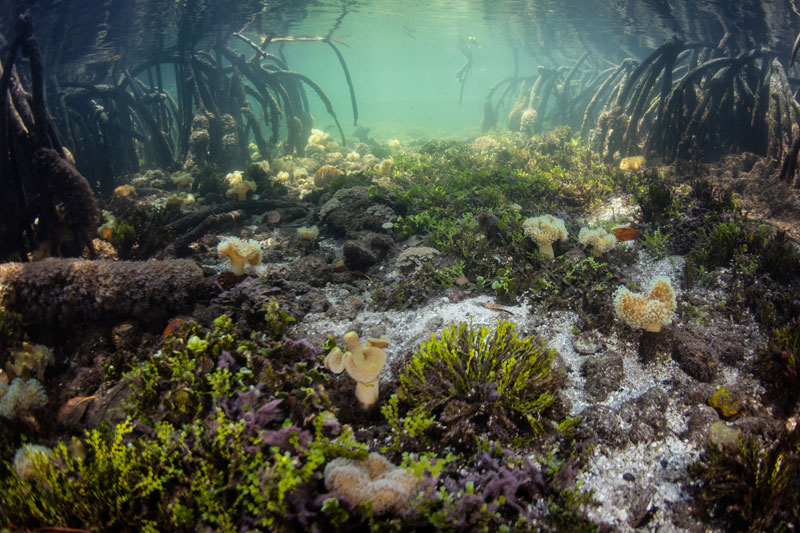
- Marine Ecology: Gain an understanding of marine ecosystems, including coral reefs, mangroves, and seagrass beds, and explores the impact of human activities on these environments.
- Fish Identification: Learn to identify various fish species, which helps in contributing to citizen science efforts and gaining a deeper appreciation of marine biodiversity.
- Coral Identification: Learn about coral species and the threats they face, helping you to become more aware of the importance of protecting coral ecosystems.
This article was written by Kathryn Curzon, a dive travel writer for SSI.
